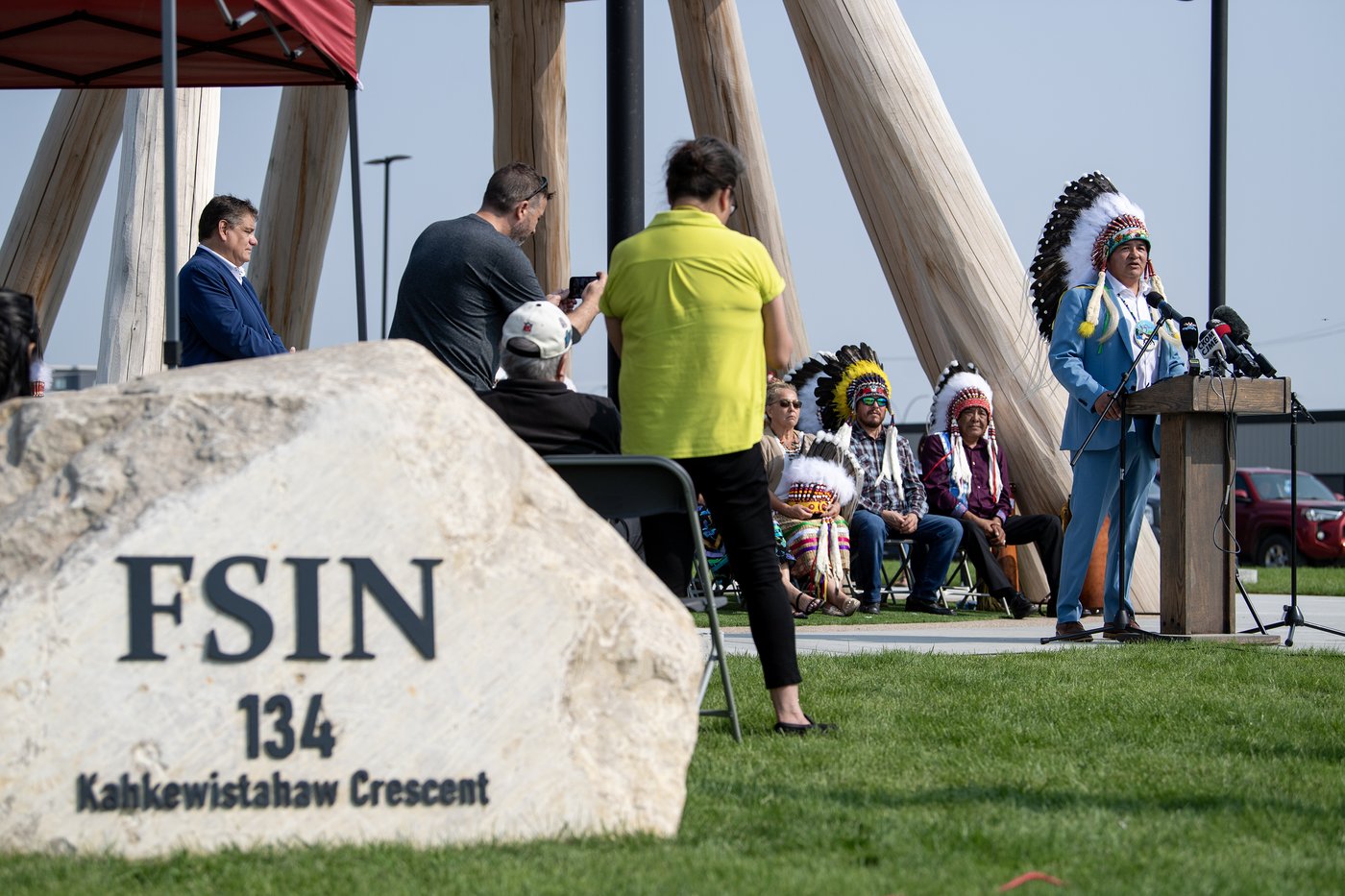Elevate your local knowledge
Sign up for the iNFOnews newsletter today!
Sign up for the iNFOnews newsletter today!
Selecting your primary region ensures you get the stories that matter to you first.

OTTAWA — First Nations chiefs in Saskatchewan say they want answers after a forensic audit of the Federation of Sovereign Indigenous Nations concluded more than $34 million of the organization’s spending between April 2019 and March 2024 was “questionable,” unsupported or ineligible.
“The FSIN has a long-standing history that has been there to advocate for treaty and inherent rights for our First Nations people across Saskatchewan, and the only way we can get that back is by being honest,” Chief Marc Arcand of the Saskatoon Tribal Council told a media conference in Saskatchewan.
“To the chief and to the vice chiefs, start taking some responsibility. Start being honest with your people. Start talking to your people, whether you did something right or something wrong.”
The forensic audit, conducted by KPMG for the federal government, examined federal funds provided by Indigenous Services Canada to the organization, which represents 74 First Nations in Saskatchewan.
The department said last March the audit would review more than $141 million in funding provided since April 2019.
The audit found that $25 million of the $30 million the organization received for COVID-19-related funding was spent in a way that was “questionable.” It also said KPMG couldn’t determine if any of the personal protective equipment purchased with the money was distributed to the communities FSIN represents.
The audit also cited more than $50,000 in “questionable” or “ineligible” travel expenditures, along with another $265,000 in travel spending that KPMG said may have contravened the FSIN’s own travel policies.
KMPG also said there may have been an overpayment among nearly $250,000 in salary and contract payments issued to a former employee, among other charges for vehicles, photocopying, administrative fees, and procurement KMPG found ineligible, questionable or unsupported.
The Federation of Sovereign Indigenous Nations did not immediately respond to a request for comment.
Arcand said the FSIN’s leadership has been silent since the findings were released publicly this week.
“There’s no communication from the FSIN chief and vice-chiefs to what is happening,” he said.
“We see in the report a breaking of internal policies and procedures. As the chiefs of rights-holders in all our 74 nations, they need to know why that is happening. But again, I’ll stress, nobody is telling our leadership why this is happening. How come?”
Arcand said that while all First Nations organizations are underfunded, that doesn’t give them the authority to break the rules.
“We have to comply,” he said.
Chief Kelly Wolfe of Muskeg Lake Cree Nation pointed to the COVID-19 funding KPMG raised questions about.
“Many of these transactions happened over COVID — a time when our people were dying, a time when our hospitals were full, our nurses were overworked, our families were isolated and our children unable to go to school,” Wolfe said.
“This is very wrong, and it needs to be addressed.”
The James Smith Cree Nation, also in Saskatchewan, welcomed news of a separate forensic audit of its operations announced by Indigenous Services back in July.
In a statement posted to Facebook at the time, James Smith Cree Chief Kirby Constant said that he raised concerns about discrepancies in pandemic funding that was supposed to flow into the community through the FSIN.
The James Smith Cree audit will cover funding issued to the nation from April 2018 to July 2025.
Constant spoke at the media conference, saying the findings in the audit of FSIN is “unacceptable.”
“James Smith is disheartened,” he said, pointing to concerns he has about the $6.5 million FSIN received on behalf of his First Nation, saying $4.5 million of that was transferred to another account for the purpose of personal protective equipment.
“There was no report other than a picture book of PPE being delivered,” he said.
“It’s disappointing.”
Both Wolfe and Constant thanked women who have worked within the organization for speaking out, despite experiencing pushback from within for doing so.
“It’s a time to move forward. Confidence in this leadership is gone. We need accountability, transparency, and the return to the principles of integrity the way our ancestors envisioned.”
This report by The Canadian Press was first published Sept. 26, 2025.
This site is protected by reCAPTCHA and the Google Privacy Policy and Terms of Service apply.
Want to share your thoughts, add context, or connect with others in your community?
You must be logged in to post a comment.